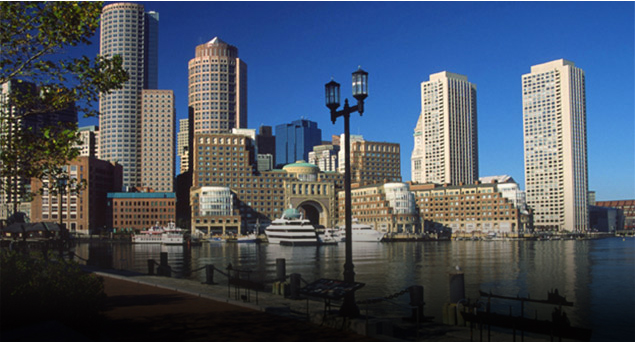EDF created the Boston Peer Learning Network in 2013 as a forum where organizations facing similar challenges could learn from each other. The organizing framework for the network was the Virtuous Cycle of Strategic Energy Managment, a model jointly developed by EDF and MIT, and the purpose was to speed adoption of energy management practices that deliver systemic and lasting reductions in costs and GHG emissions.
The Impact
In the summer of 2013, seven EDF Climate Corps fellows working on energy efficiency projects in Boston found $2.6 million in net operating savings and 7,800 metric tons of potential CO2 reductions. An additional nine fellows worked on a variety of other projects including climate and energy strategy, financing and goal-setting. To take this success one step further, working with the Boston Green Ribbon Commission and MIT Sloan School of Management, EDF Climate Corps facilitated the sharing of energy management best practices across these 16 organizations.
The Boston Peer Learning Network met seven times from September 2013 through June 2014, with each meeting hosted by a different organization and focusing on a specific aspect of the Virtuous Cycle. Participants included the City of Boston, Boston Housing Authority, Boston Public Health Commission, Comcast, the Federal Reserve Bank of Boston, Massport and the Massachusetts Division of Capital Asset Management and Maintenance.
The Boston Peer Learning Network is a model that EDF will look to replicate in other regions to harness the power of networks to drive deeper reductions in energy use and emissions. We expect to catalyze energy savings in the short term, while also leading to organizational actions to improve energy management and drive down emissions long after the Climate Corps fellowships end. We also expect that the outcomes from the Boston Peer Learning Network will accelerate the organizational, policy and market changes that are needed to meet the city’s greenhouse gas reduction goals.
